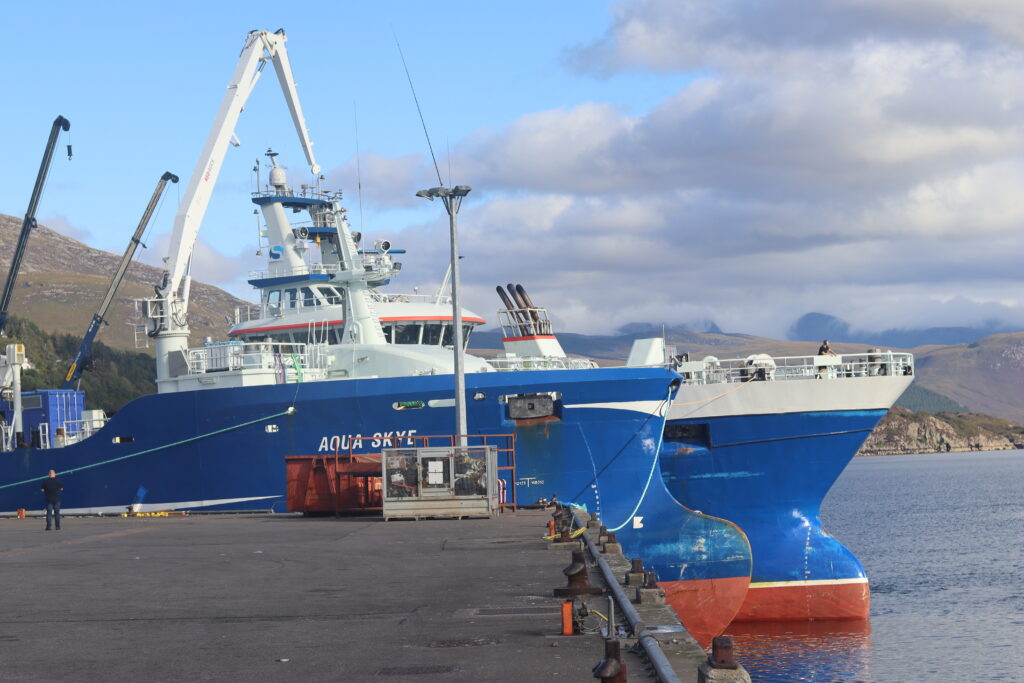The sight of a new ship of moderate size in Ullapool harbour was always going to arouse curiosity. The Aqua Skye was in fact recently arrived from a shipyard in Turkey and fitted out with state of the art systems in Norway and would provide services to the various salmon farms on the West Coast of Scotland. Such services, however, would not be that of fetching and carrying feed for such farms, but rather providing a function that 99.9 % of consumers of Scottish salmon have never heard of – that of removing ‘sea lice’ from the salmon. In the living environment of farmed salmon, a persistent problem is the attachment of sea lice to the exterior scally surface of the fish. This damages the health of affected salmon and the quality of salmon product. In fact to be more specific salmon farms across the world are suffering from infestations of Lepeophtheirus salmonis. In the United Kingdom there are legal limits to the level of infestation permitted in sold product.
The immersion of the salmon, however, in fresh warm water loosens the attachment of the sea lice and this has been chosen as the best way of treating the problem. Ships such as the Aqua Skye sail up to a salmon farm and decant the fish into on board holding tanks filled with fresh water that is produced by reverse osmosis. In this process sea water is pumped at high pressure through special filters to produce fresh water. After treatment the fish are returned to their holding pens in the sea. Marine ecology is perhaps more challenging than land based systems.
The internet opens up information regarding the the ‘world of salmon farming’. While industry news sources aim to provide an ‘upbeat’ view of the industry, it can’t conceal clouds on the horizon for sea based salmon farms such as those in Scotland. As part of a world wide problem, global warming is raising sea temperatures which in turn creates challenges in maintaining the health of fish.
The on-going development of the land based recirculating aquaculture system (RAS) is a direct threat to conventional salmon farms everywhere. In these systems, fish are essentially reared in large tanks on land in an environment that can be precisely controlled and monitored without all the risks and hazards of the marine environment. A key factor for such systems is an adequate supply of high quality fresh water. Such systems effectively try to decouple their activity from the local environment. Those who obtained degrees in Marine Biology could be very much in demand to provide informed advice to regulators considering such applications.
A surprising but worrying development in this sector is the massive investment that Saudia Arabia is planning for RAS systems as part of diversification of its economy. The film ‘Salmon Fishing in the Yemen’ which starred Ewan McGregor may have been a Holywood jolly but coming soon could be ‘Salmon Farming in Saudia Arabia’ on a petro-dollar scale which would be only too real.
